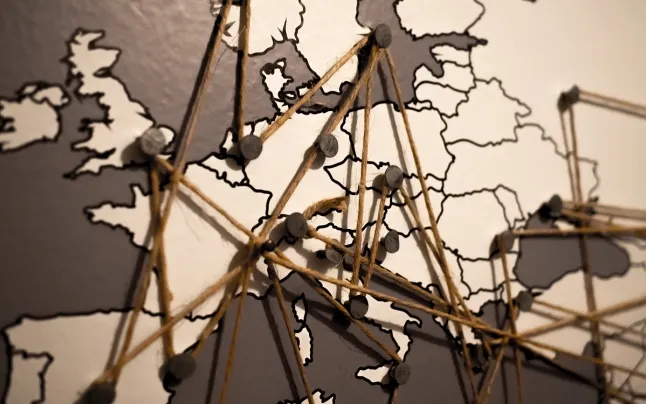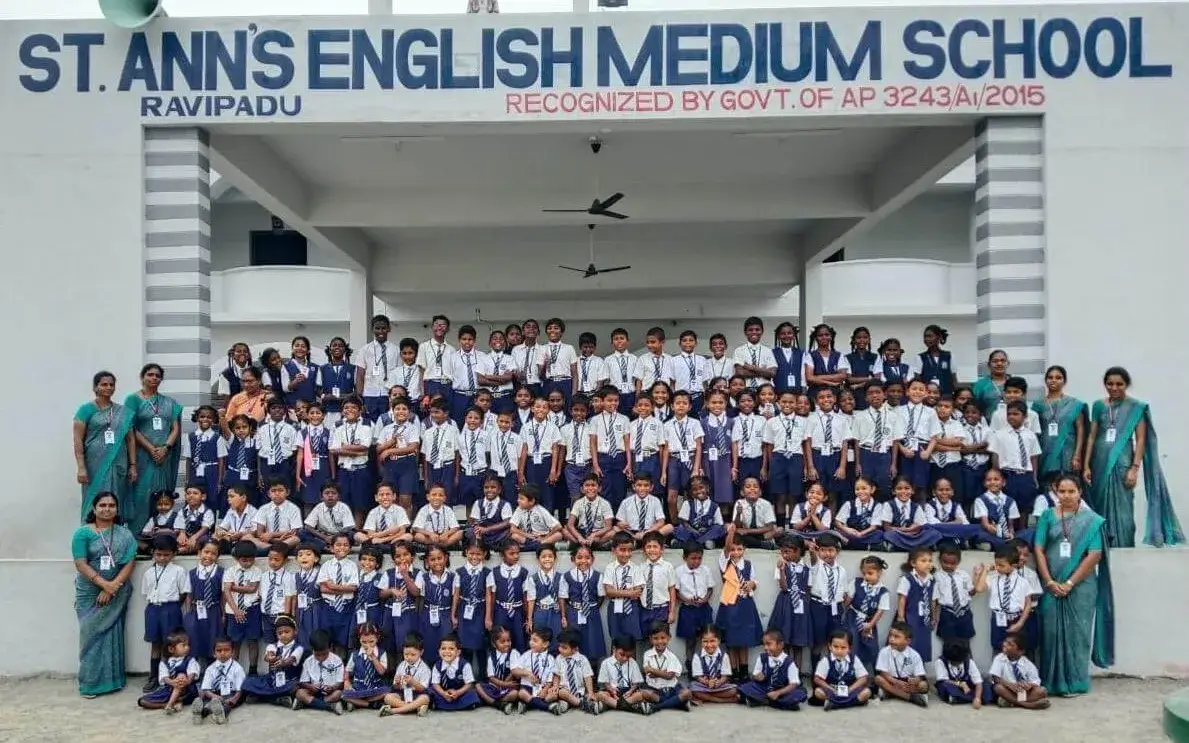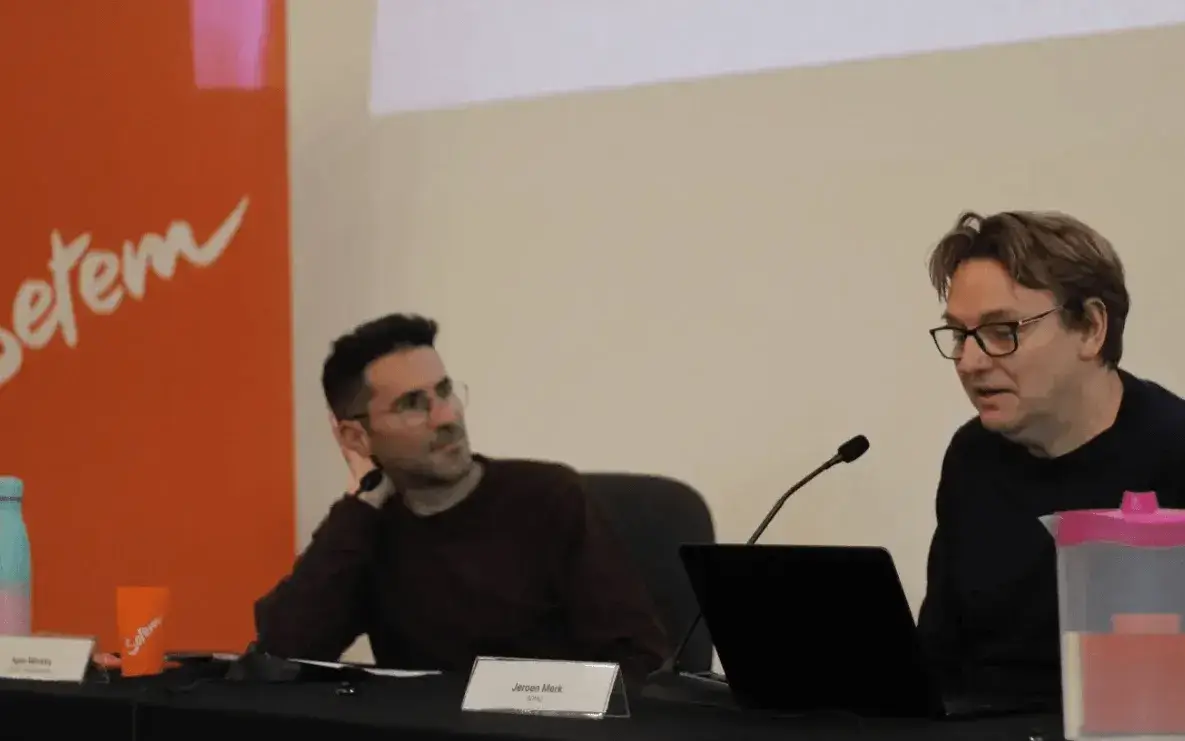It is a program to promote volunteering and solidarity among European youth through funding to cooperation organizations.
The European Solidarity Corps is a funding program dedicated to offering volunteering opportunities to young people between 18 and 30 years of age . The projects that are part of this program, that is to say that they are subsidized by it, manage, from a wide range of topics, community cooperation project initiatives both in their own country and in others, in which young people participate as a volunteer or, in some cases, a worker.
People interested in participating can go to the official website of the European Solidarity Corps to search for projects that interest them. Below are the keys to this program and the steps you must follow to participate.
How it works: management and areas of participation
The European Solidarity Corps , as a subsidy program, is managed by the European Commission , and is implemented by three bodies: the European Executive Agency for Education and Culture (EACEA) , the national agencies of each participating country and the SALTO centers .
The organizations that participate in the program are subsidized by it and coordinated by these agents , from executing projects within the framework of the proposals launched by the Commission , in which different participation frameworks are offered to young people: volunteering and volunteering in humanitarian aid (1), solidarity projects (2) and internships and employment (3). The keys to these areas of participation are detailed in the following sections.
The projects in which this participation can be carried out can be of a wide variety of themes : creativity and culture, entrepreneurship, environment, physical education and sport, education and training, social challenges, disaster prevention and recovery, health and well-being, work with migrants and refugees...
1. Volunteering and humanitarian aid volunteering
volunteering
Most of the opportunities of the European Solidarity Corps are cross-border volunteering , of a large number of topics that focus on providing help to entities or organizations in the region that work for the benefit of the local community . There are two forms of volunteering, individual and team. Individual volunteering can last from 2 to 12 months , and is carried out in 30- to 38-hour days per week .
Team volunteering is similar to individual volunteering, but is an option for a shorter commitment. The duration, therefore, is usually from 2 weeks to 2 months , and is carried out in days of 30 to 38 hours per week , and in groups of between 10 and 14 participants in which there are people of at least two different countries
- coverage
The volunteering programs of the European Solidarity Corps offer different elements of economic coverage . To begin with, the costs of travel to and fro , accommodation and food will be paid, as well as other specific needs such as for example for people with disabilities. In addition, the participation includes a small allocation for personal expenses (from 3 to 6 euros per day) and complementary insurance.
Apart from the more economic issues, the program also offers different linguistic support and training services necessary to carry out the task.
- organization
Individual volunteering is based on the relationship with two organizations . First, the support organization , which is located in the country of origin and will perform preparation and management functions. In addition, there will be the host organization in the country of destination, which is the one with whom the volunteer will carry out his work, and the one that will receive him and provide him with the necessary services and support.
Team volunteering does not need a support organization.
- registration
Before registering, you will need to create an EU Login account , an authentication service for users of the European Commission. Once this is done, all you have to do is create a profile , which will generate a personal space on the platform from which you can search for opportunities, submit applications, view certificates of completion, participate in contests, and more.
Humanitarian aid volunteering
From 2022, the European Solidarity Corps offers cross-border volunteering opportunities to countries outside the European Union that have suffered humanitarian tragedies or want to improve the management of possible future disasters . In addition, various issues are also addressed, such as the protection of women, children, migrated people, mitigating the effects of climate change, improving food security... In no case will it be about one country with an open armed conflict.
As with the other type of Corps volunteering, there are two formats, individual and team , which follow the same parameters.
- organization
To carry out humanitarian aid volunteering, you will have a relationship with a minimum of three organizations . There will be at least two support organizations from different member states of the European Union or third countries associated with the program that will help those interested in preparing their experience. There will also be at least one host organization , based in the country of destination, which will not be associated with the program. She is the one who will accompany the volunteer during their work.
- coverage
The Corps' humanitarian aid volunteer program covers the same expenses as statutory volunteering , although the allocation for personal expenses is not specified.
- registration
People interested in volunteering in humanitarian aid must register here following the same process as for regulatory volunteering and express their interest in this mode of volunteering. It should be borne in mind that to participate in humanitarian aid, a self-assessment and online and face-to-face training will have to be carried out .
2. Local solidarity projects
The European Solidarity Corps offers the possibility to young people to start projects on their part in their locality that address certain social challenges of local, regional or national scope . The main requirement is that these projects respond to the priorities established by the European Union (inclusion, democratic commitment, gender equality, climate change, citizenship...). In all cases, the initiative must have a specific duration, between 2 and 12 months , and be carried out part-time . In addition, the project must be carried out by at least five people, all of whom are between 18 and 30 years old.
The financial support to start and run the initiative offered by the Corps is 630 euros per month .
- How to make the request
For solidarity projects, it is necessary to apply for direct funding through the official channel through the Corps' open calls , which will be evaluated by the national agency. If you wish, you can choose to request the accompaniment of an experienced entity through the Corps' accredited entities portal .
Before applying for funding, you will need to create the project group , register all the people in the group with the Corps , and obtain an organization ID . It would also be interesting to find out and keep several documents in mind, such as the European Solidarity Corps Guide or the different pages of the national agency.
From here, it's time to shape the project, structuring the ideas into objectives, participants, expected results, budget, activities ... It may be interesting to consult the Xarxanet ' How to design projects ' resource. Once this is done, you can proceed to submit the application . Here you will need to answer questions such as the reasons for the project, how it will benefit the community, what activities will be carried out... You will need to fill out the ' ESC30 application form for charity projects ', and you can follow a model like this .
3. Internships and employment
The internship and employment programs of the European Solidarity Corps have been suspended for the 2021-2027 program , but those that were already underway and managed with the budget of the previous program, continue until their completion . These are job-type opportunities in the field of community aid.
practices
The internship programs of the Corps can be carried out both in the own country and abroad , and have a duration of 2 to 6 months (renewable once), on a full-time basis. They are remunerated by the responsible organization.
- coverage
Internship programs cover not only this remuneration , but also a small help in case of needing relocation , travel expenses, complementary insurance, and any specific needs. They also provide access to various training and language support services.
occupation
The body's employment programs can also be carried out abroad or in the country itself, but they have a minimum duration of 3 months , and, although there is no maximum duration, the financial support to the organization where will carry out the contract is limited to 12 months. As an employment contract, these types of programs are fully governed by national law , and are full-time and remunerated by the hiring organization.
- coverage
These programs cover the same expenses as internships, and the remuneration is in the form of a formal salary .
- registration
In order to enroll in both the work and internship programs of the Corps, you must follow the same procedure as in the case of volunteering.
Participating countries
The European Solidarity Corps differentiates between two types of countries . First, the ' programme countries ', a group made up of the countries of the European Union and Iceland, Liechtenstein, North Macedonia and Turkey. Second, the so-called ' partner countries ', which are the following countries, neighbors of the European Union: Albania, Algeria, Armenia, Azerbaijan, Belarus, Bosnia and Herzegovina, Egypt, Georgia, Israel, Jordan, Kosovo, Lebanon, Libya, Moldova , Montenegro, Morocco, Norway, Palestine, Russia, Serbia, Tunisia and Ukraine.
Some activities are open to both groups of countries , but there are others that are not. Relevant information can be found on the official page of each activity.
How to participate
To participate in the European Solidarity Corps, in all cases and as already indicated in some sections, the first step is to have an EU Login profile . Then, you must register on the European Solidarity Corps portal , a meeting platform between young people and subsidized organizations where a personal space will be created from which to find volunteering programs, funding for solidarity projects and employment and internship opportunities, as well how of training
In addition, the profile is open, and allows you to indicate the person's availability for organizations to contact them directly.
This, as already noted, is common to all the opportunities offered by the European Solidarity Corps. To find out the specifics, you must consult the sections corresponding to each opportunity (1, 2 and 3).
Requirements to participate
The minimum age to register with the European Solidarity Corps is 17 years , but you cannot start a project until you are 18. The maximum is 30 years , with the exception of humanitarian aid volunteering, which places the maximum in the 35.
Apart from that, there are some requirements that must be met. First of all, it is necessary to commit to respecting the ' principles of the European Security Council '. It is also important to bear in mind that only a long-term volunteering activity is allowed (from 2 to 12 months. However, it is possible to carry out solidarity projects, internships and stays of employment and volunteering in a team.
On the other hand, if you do a short-term volunteering activity (up to 2 months), you can still do a long-term activity or participate in team volunteering programs, internships and employment, or solidarity projects.







Add new comment